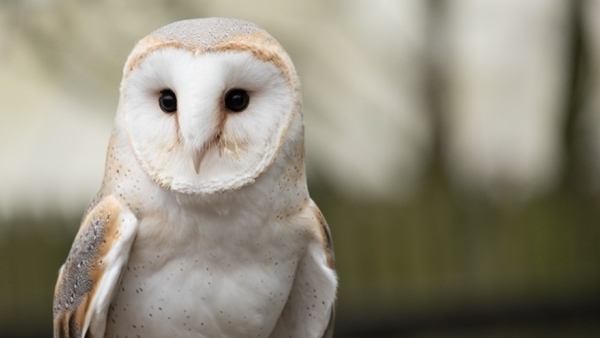
- 68 projects have been awarded grants between £62k and £3.8 million to kick-start a pipeline of nature-based projects while creating and retaining jobs
- First funding round sees £40 million pot allocated, second round of funding to open in early 2021
The Owl Box Initiative from the Game & Wildlife Conservation Trust (GWCT) is one of the first environmental projects awarded a grant from the government’s £80 million Green Recovery Challenge Fund.
Defra announced grants between £62,000 and £3.8 million today, to help create and retain thousands of green jobs. The projects, spread across England, will see trees planted - 800,000 in total - and protected landscapes and damaged habitats such as moorlands, wetlands and forests restored, alongside wider conservation work. The projects will also support environmental education and connecting people with green spaces.
 Through The Owl Box Initiative GWCT conservation scientists will work with 100 farms over 40,000ha to inspire farmers and communities to work for the conservation of the iconic barn owl. As a top predator, the barn owl provides an indication of ecosystem health, and conservation measures that benefit owls improve wider farmland biodiversity. By engaging farmers, their families and wider communities in working for the barn owl, the project aims to connect people with farmland wildlife and promote a better understanding of wildlife friendly farming measures.
Through The Owl Box Initiative GWCT conservation scientists will work with 100 farms over 40,000ha to inspire farmers and communities to work for the conservation of the iconic barn owl. As a top predator, the barn owl provides an indication of ecosystem health, and conservation measures that benefit owls improve wider farmland biodiversity. By engaging farmers, their families and wider communities in working for the barn owl, the project aims to connect people with farmland wildlife and promote a better understanding of wildlife friendly farming measures.
The Green Recovery Challenge Fund grant will allow the GWCT to build on existing work with farmer groups and expand to new sites across Hampshire, Wiltshire and Dorset, despite the financial pressure on the charity caused by the Covid-19 crisis. 64 barn owl nest boxes will be installed and monitored during the breeding season, with feedback provided to farmers. Adult barn owls will be GPS-tracked to better understand their use of arable habitats for foraging and enable farmers to see the effects of their conservation efforts. During the project a barn owl brood will be live streamed to the GWCT website, engaging the wider public with the conservation effort. The scientists and farmers will work with local conservationists and bird-ringers, helping to build better relationships between volunteer groups and farmers.
Dr. Niamh McHugh, project leader at the Game and Wildlife Conservation Trust, said:
“Barn Owls are among the most iconic and instantly recognisable of farmland birds. As a recovering flagship species, they serve as a reminder of what farmland conservation measures can achieve. Through The Owl Box Initiative we will provide recognition for the work that farmers do for wildlife. We aim to inspire a greater appreciation of farmland conservation among local communities, through volunteering and community events, and will encourage farmers to continue to make further positive changes.”
The Green Recovery Challenge Fund is a key part of Prime Minister’s 10 Point Plan to kick-start nature recovery and tackle climate change. The fund is being delivered by the National Lottery Heritage Fund in partnership with Natural England and the Environment Agency.
Environment Minister, Rebecca Pow, said:
“These projects will drive forward work across England to restore and transform our landscapes, boost nature and create green jobs, and will be a vital part of helping us to build back greener from coronavirus.
“I look forward to working with environmental organisations as these projects help address the twin challenges of biodiversity loss and climate change, while creating and retaining jobs as part of the green recovery.”
Ros Kerslake, Chief Executive, National Lottery Heritage Fund, said:
“Supporting our natural environment is one of the most valuable things we can do right now. All these projects are of huge benefit to our beautiful countryside and wildlife, but will also support jobs, health and wellbeing, which are vitally important as we begin to emerge from the coronavirus crisis.”
The government’s forthcoming Environment Bill puts the environment at the centre of policy making to ensure that we have a cleaner, greener and more resilient country for the next generation. The fund is supporting a range of nature conservation and recovery and nature-based solutions projects, which will contribute towards government’s wider 25 Year Environment Plan commitments, including commitments to increase tree-planting across the UK to 30,000 hectares per year by 2025.
Notes to editors
The Game & Wildlife Conservation Trust – providing research-led conservation for a thriving countryside. The GWCT is an independent wildlife conservation charity which has carried out scientific research into Britain’s game and wildlife since the 1930s. We advise farmers and landowners on improving wildlife habitats. We employ more than 60 post-doctoral scientists and other research staff with expertise in areas such as birds, insects, mammals, farming, fish and statistics. We undertake our own research as well as projects funded by contract and grant-aid from government and private bodies.
For information, contact:
Eleanor Williams
Telephone: 07592 025476
Email: press@gwct.org.uk